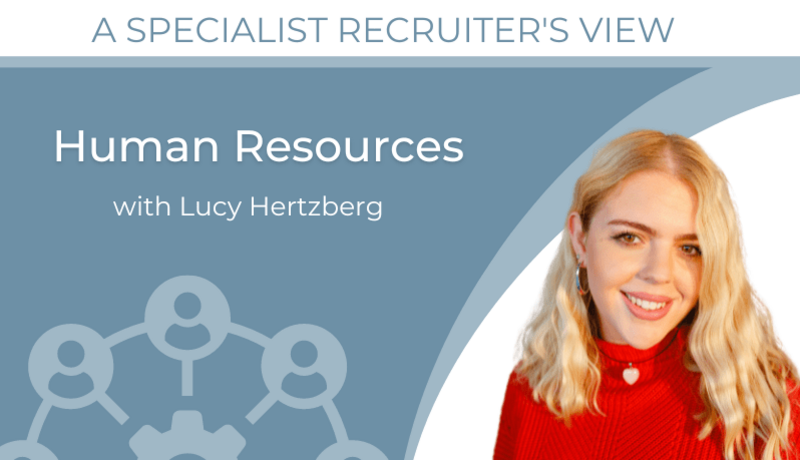A Specialist Recruiter's View | Human Resources with Lucy Hertzberg
Posted on November 2022

For over two decades we have supported individuals in their careers by sharing our specialist market insight and knowledge. In the following interview, Lucy Hertzberg, Senior Executive Consultant in our NHS HR team, discusses her experience in this sector and the current market.
What would a career in HR offer to a successful candidate?
Every organisation has a HR team, so it’s a busy sector with many different career opportunities, specialisms and avenues to explore. Someone working in HR will be able to advance within an organisation and change direction to find what suits them if they wish. Because HR is a people-focused sector, the work is never dull and there is always something new to be dealing with.
How has the market changed over the recent years?
The market is now very candidate-driven, with candidates having increased agency to choose what they want to be doing. As a result, there is greater flexibility around remote working, and a large number of our roles are now hybrid. The market has also changed in the nature of the roles that we are recruiting for. Because HR is people focused, it is influenced by the sociopolitical landscape, and movements such as Black Lives Matter and the increased awareness around mental health struggles have caused organisations to reflect inwards. As a result, we have seen an increase in specialist EDI and wellbeing roles over the last year.
What are the best routes for someone to enter into and progress within HR?
A really good route is to get an entry-level HR Administrator or HR Officer job in an organisation that can provide training, such as a CIPD course. Once you’ve gained those initial practical skills and qualifications, you can progress and choose which aspects of HR you would like to focus on, such as ER, project work or transactional roles, which you can then tailor future training courses towards.
How can candidates best remain up-to-date with the latest developments in the sector?
Employment law is a key area to remain informed on; employee relations is one of the busiest areas we recruit for and up-to-date information on this is available from the Acas website. Alongside this, it’s important to keep up to date with HR policies specific to the sector you’re in or looking to move into. Finally, as HR is influenced by developments in wider society, it’s good to keep an eye on the news and social media to see what could have an impact on your sector.
What skills and characteristics will make candidates stand out?
Candidates should tailor their CVs to the area of HR they’re applying to. For example, with transactional roles such as a HR Operations Manager, the Hiring Manager will be looking for evidence of leadership skills. On the other hand, for a strategic project role, they will be more interested in seeing what projects you’ve led, along with the key milestones and outcomes.
In a similar way, candidates should review the company website and policies so they can ask questions at interview specific to the organisation and role, such as asking about the timelines for a project role, or how many people you will be line managing for an operational role. This will show their engagement with the organisation and demonstrate that they’ve done their research.
Why do you recruit for HR?
I studied sociology and politics at university, so I’m very interested in what’s going on in wider society and in the media, which all feeds into HR; it’s relevant, it’s constantly changing, and it’s crucial to the running of an organisation. Alongside this, the candidates are enjoyable to work with because they’re people focused, and building strong candidate relationships is one of the highlights of my job.
To discuss your recruitment or career plans within NHS HR, email Lucy at lhertzberg@venngroup.com or call 0207 557 7667.
Recent Articles
-
Flipping the Script on Islamophobia | Personal perspective | Nadia Muzaffar
Conversation is a powerful tool. Even a two-minute chat can change a perception, correct a misco...
13 days ago -
Pancreatic Cancer Awareness Month | Personal Perspective | Louise Francis
This year, our Birmingham office chose to fundraise for Pancreatic Cancer UK in support of my br...
20 days ago -
Personal Perspective| Islamophobia Awareness Month with Safiyyah Ayaz
For Islamophobia Awareness Month, we are honoured to feature passionate employees who have chosen...
about 1 month ago